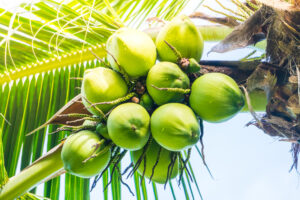Introduction: The Allure of Desiccated Coconut
Nestled within the heart of this humble ingredient lies a world of culinary enchantment. As we embark on this gastronomic adventure, let us first uncover the captivating allure of desiccated coconut. From its humble origins to its esteemed status in kitchens worldwide, join us as we delve into the essence of this tropical treasure.
Embracing the Essence of Desiccated Coconut
Within the delicate shreds of desiccated coconut, a symphony of flavors awaits. With each whisper of coconut essence, we are transported to sun-drenched shores and verdant landscapes. Join us on a sensory exploration as we uncover the essence of desiccated coconut and its unparalleled culinary significance.
Previewing Our Culinary Adventure
Prepare to immerse yourself in a world of culinary wonders as we decode the mysteries of desiccated coconut. Throughout this culinary escapade, we’ll unveil its secrets, from its production methods to its diverse applications in culinary creations. From delectable desserts to savory delights, desiccated coconut infuses each dish with a touch of exotic charm. So, fasten your seatbelt and get ready for a mouthwatering journey into the culinary mastery of desiccated coconut.
Understanding Desiccated Coconut
Desiccated coconut, a staple in many cuisines worldwide, is the product of drying and shredding fresh coconut meat. This process removes moisture, resulting in a finely grated, unsweetened coconut product. Desiccated coconut holds a special place in culinary traditions, valued for its texture, flavor, and versatility in various dishes.
Production of Desiccated Coconut
The production of desiccated coconut involves several steps. First, fresh coconut kernels are removed from the husk and shell. These kernels are then finely grated or shredded, typically using specialized machinery. The shredded coconut is then dried either through natural or mechanical means until it reaches the desired moisture content, usually around 3% to 4%. This thorough drying process ensures the longevity and shelf stability of desiccated coconut without compromising its flavor or nutritional value.
Types and Forms
Desiccated coconut comes in various types and forms, catering to different culinary needs and preferences.
Fine Desiccated Coconut: This type features finely grated coconut flakes, commonly used in baking and dessert recipes for a delicate texture.
Medium Desiccated Coconut: With slightly larger shreds compared to the fine variety, medium desiccated coconut adds texture to baked goods, granolas, and savory dishes.
Unsweetened Desiccated Coconut: Often preferred for its pure coconut flavor, unsweetened desiccated coconut is versatile and suitable for both sweet and savory recipes.
Toasted Desiccated Coconut: Toasting desiccated coconut enhances its nutty flavor and adds a golden brown hue, making it a popular choice for toppings, garnishes, and snacking.
Organic Desiccated Coconut: Produced from organically grown coconuts without synthetic pesticides or fertilizers, organic desiccated coconut appeals to health-conscious consumers seeking natural and sustainable ingredients.
Reduced Fat Desiccated Coconut: For those watching their fat intake, reduced fat desiccated coconut offers a lighter option while still providing the distinctive flavor and texture of traditional desiccated coconut.
Coarse Desiccated Coconut: Featuring larger coconut flakes, coarse desiccated coconut provides a chewier texture and stronger coconut flavor, ideal for adding a tropical twist to various dishes.
With its diverse range of types and forms, desiccated coconut offers endless culinary possibilities, from enhancing baked goods to enriching savory dishes with its tropical flair.
In summary, desiccated coconut, obtained through the meticulous drying and shredding of fresh coconut meat, serves as a versatile ingredient in a wide array of culinary creations. Its various types and forms cater to different tastes and preferences, making it a beloved staple in kitchens worldwide. Whether used in baking, cooking, or as a flavorful garnish, desiccated coconut adds depth and richness to dishes, elevating the overall dining experience.
Health Benefits of desiccated coconut
Desiccated coconut, a finely grated, dried form of coconut flesh, boasts a remarkable array of health benefits that make it a valuable addition to any diet. Let’s delve into its nutritional content and explore the potential health advantages it offers.
Nutritional Content
Desiccated coconut is packed with essential nutrients, making it a nutrient-dense ingredient for various culinary endeavors. It is a rich source of healthy fats, primarily medium-chain triglycerides (MCTs), which are known for their quick energy release and potential to support weight management. Additionally, desiccated coconut contains dietary fiber, providing digestive support and promoting gut health. It is also abundant in minerals such as manganese, copper, and selenium, which play vital roles in enzyme function, antioxidant defense, and bone health.
Moreover, desiccated coconut contains notable amounts of iron and zinc, essential minerals involved in immune function and cellular metabolism. Furthermore, it is a good source of vitamin B6, which is crucial for neurotransmitter synthesis and immune modulation.
Potential Health Advantages
Incorporating desiccated coconut into your diet can offer various health advantages. The presence of MCTs in desiccated coconut may support metabolic health by boosting energy expenditure and promoting satiety, potentially aiding in weight management efforts. Additionally, the fiber content of desiccated coconut can contribute to improved digestive health, preventing constipation and supporting regular bowel movements.
Furthermore, the minerals found in desiccated coconut, such as manganese and copper, exhibit antioxidant properties that help combat oxidative stress and reduce the risk of chronic diseases. The presence of iron in desiccated coconut supports red blood cell production and helps prevent iron deficiency anemia, particularly beneficial for individuals with increased iron requirements.
Moreover, the zinc content of desiccated coconut plays a vital role in immune function, aiding in the body’s defense against infections and supporting overall immune health. Additionally, the vitamin B6 found in desiccated coconut contributes to neurotransmitter synthesis, promoting cognitive function and mood regulation.
In conclusion, desiccated coconut offers an impressive array of nutritional benefits, ranging from its rich nutrient content to its potential health advantages. By incorporating desiccated coconut into your diet, you can enjoy its culinary versatility while reaping the numerous health benefits it has to offer.
Culinary Uses
Desiccated coconut is a versatile ingredient that adds a delightful flavor and texture to a wide array of culinary creations. From sweet treats to savory delights, its unique profile enhances the taste and presentation of dishes across various cuisines. Let’s delve into the diverse ways desiccated coconut can be incorporated into your cooking adventures.
Baking with Desiccated Coconut
In the realm of baking, desiccated coconut plays a starring role in numerous delectable delights. From moist and flavorful cakes to chewy cookies and irresistible bars, this ingredient adds a subtle sweetness and delightful crunch to your favorite treats. Incorporating desiccated coconut into your baking endeavors not only elevates the taste but also introduces a lovely hint of tropical flair to your creations.
Cooking Savory Dishes
Beyond the realm of sweets, desiccated coconut brings its unique charm to savory dishes, particularly in Asian and Caribbean cuisines. In curries, it thickens sauces and adds a rich, creamy texture while imparting a subtle nuttiness. When sprinkled over rice dishes, it adds a delightful crunch and a hint of sweetness. Additionally, incorporating desiccated coconut into savory recipes such as stir-fries and stews introduces a depth of flavor that is sure to tantalize your taste buds.
Exploring Beverages
Surprisingly, desiccated coconut can also lend its distinctive flavor to beverages, offering a refreshing twist to your favorite drinks. In smoothies, it adds a creamy texture and a subtle tropical essence that pairs perfectly with fruits like pineapple and mango. For cocktails, rimming the glass with toasted desiccated coconut adds an elegant touch and enhances the overall drinking experience. And in teas, incorporating a sprinkle of desiccated coconut infuses a delicate sweetness and an exotic aroma that transforms your tea time into a luxurious indulgence.
Incorporating desiccated coconut into your culinary repertoire opens up a world of possibilities, allowing you to experiment with flavors and textures in exciting new ways. Whether you’re baking a batch of cookies, simmering a savory curry, or blending a refreshing smoothie, desiccated coconut adds a touch of tropical allure to every dish. So next time you’re in the kitchen, don’t hesitate to reach for this versatile ingredient and unlock its culinary potential
Discover more about Desiccated Coconut production feel free to Visit : https://www.sciencedirect.com/topics/food-science/desiccated-coconut#:~:text=The%20process%20of%20preparation%20involves,USA%20in%20the%20early%201880s.





